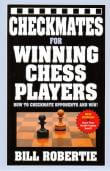
Sleeping with bad boys
SCU:978-1-58042-206-2
Alice Denham
Contrary to the sensationalized promises on the book cover, the most captivating aspect of Alice Denham’s memoir isn’t her sensual explorations with the post-World War II American literary elite. Instead, it’s Alice Denham herself. Attractive, youthful, brimming with a fervor for literature, a contempt for decorum, and an overflowing sexual desire, she made her way to New York in 1952, just in time to witness the remarkable literary bloom that gave rise to Norman Mailer, James Jones, Joseph Heller, Philip Roth, George Mandel, William Gaddis, and Anatole Broyard.
Being acquainted with all of them and having intimate relationships with many, including transient figures like Nelson Algren, Saul Bellow, and Evan Connell Jr., Denham never struggled to draw men’s attention. She found employment as a model, notorious for her nude poses and her reputation as a lively socialite. She had a deep fondness for discussing literature. Being a writer herself, after her debut story was featured in Discovery – a paperback primarily targeting the discovery of budding authors for an audience keen on witnessing the inception of literary fame, she insisted on being recognized as one. She outdid herself several years later by publishing her first book.
Given that intimacy played a significant role in her existence, it naturally influenced her literary work. She took pride in the compliments that she wrote with a masculine touch. In this day and age, it may appear insignificant but during the era before the sexual revolution, her stance was audacious. Denham constructed her professional life upon her bohemian way of living and the distinctive viewpoint it provided her, observing the protracted youthfulness of some of the most esteemed authors and editors of her time. All of this is captured in her nearly-revealing autobiography.
Denham vividly illustrates the joy these men experienced as they freed themselves from the monstrous memories of the war they had endured. Her narrative possesses a closeness and accuracy that could easily be overlooked by a less discerning or honest observer. Her book also serves as an excellent source of juicy stories, especially the insightful anecdotes about James Baldwin. Then, there is Denham herself. Her passion, her drive, and her commitment to her profession are clearly visible. She can be deeply touching. Despite her intelligence and resilience, there lies an innocence beneath her exterior that occasionally leaves her wounded and vulnerable.
This is an enlightening autobiographical account by a Playboy model, whose 1950s centerfold was concurrently published in the magazine along with her original fictional piece. It gives a detailed description of her interactions with renowned authors and celebrities throughout her professional journey.
Alice Denham, a renowned author of three novels, has contributed articles to a multitude of platforms such as Cosmopolitan, The Nation, New York Magazine, The New York Times Book Review, Publishers Weekly, The Village Voice, and The Washingtonian. Her residences are located in New York City and San Miguel, Mexico.
Denham holds a deep-seated belief in something superior and more dignified. She shares Olsen’s sentiment that “literature is a space for generosity, affection, and a craving for equals—not a competitive battleground.” This belief aids her in tolerating Norman Mailer’s foolish antics, Philip Roth’s lasciviousness, and the apathy of other writers, editors, and publishers who fail to accord her the respect she is due.
Despite the challenges, Denham manages to find assistance, gets her debut novel published, and after a series of harsh setbacks and hard-won victories, she becomes one of the founding members of the feminist organization NOW in the 1970s.
It’s Denham’s keen discernment that preserves her sanity amid all the chaos—a knack for delivering unembellished truths, and for gleefully jabbing at foolishness with a sharp, Swiftian wit. No one, including Denham herself, is immune to the sting of her biting humor.
Her life story serves as a testament to how a woman’s abilities can be grossly undervalued—refer to the chapter about her work published in Playboy—and how the same woman can survive the tumultuous eras of the ’50s, ’60s, and ’70s, to lead a fruitful and satisfying life as a writer. In Denham’s perspective, a crap-filled emperor doesn’t warrant new attire. She warns us about further self-deception, and we trust her voice, which provides both advice and enjoyment.







